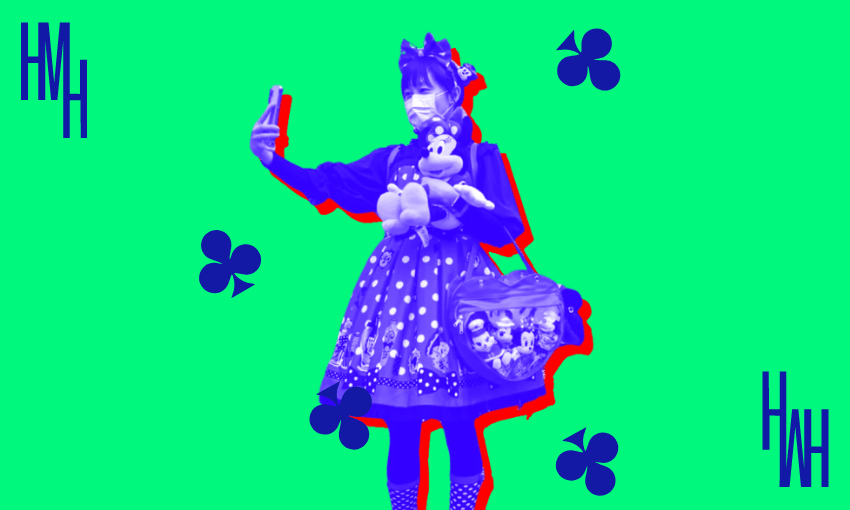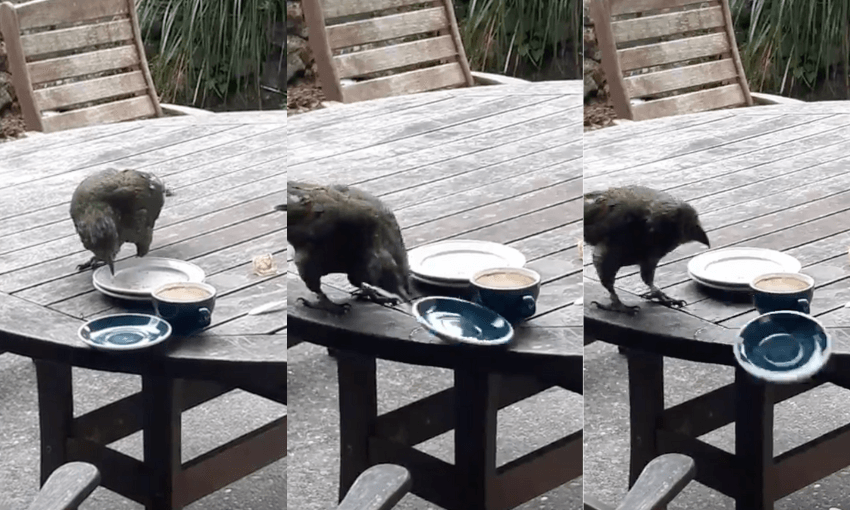I’m sick of feeling ashamed of something that brings me so much joy.
Want Hera’s help? Email your problem to helpme@thespinoff.co.nz
Dear Hera,
When I think of my childhood, I think of Disney. One of my earliest memories was getting dressed up as Snow White and prancing around for my family’s entertainment. In primary school, I took part in a singing competition where I dressed up as Mulan and gazed deeply into my “reflection” through a small hand mirror. I played Nala in a school production and proudly sashayed my way around the classroom pretending to be her for days on end to get into character. All these things were acceptable when I was 10 – encouraged even.
But as an adult in her late 20s, I find myself hiding how deeply ingrained Disney is in my brain. I don’t tell people that I went to see Frozen the day it came out and sobbed within the opening notes of the first scene. Or that I saw Moana five times in the cinemas. People would be shocked to know that I play ‘Let it Go’ on repeat when I’m having a bad day, and that my ideal proposal is the ‘I See the Light’ scene with lanterns floating up into the sky from Tangled. But for some reason, I fear I’ll get judged by people for loving Disney as much as I do now that I’m an adult. That it’s not “cool” for a millennial to like it, in the same way we shouldn’t wear skinny jeans or say “slay” anymore.
The thing is though, the world needs some joy right now. I think more people love Disney than they let on. I think that everyone has one small link, one moment where they’ve cracked a smile or hummed a song and felt good and light and like a child again.
I cried during Frozen because I was missing my mum, and the theme reminded me of the early days when we would cuddle up and watch a Disney movie together. I watched Moana so many times in cinemas because my little brother and sister would come with me, and it made me feel closer to them, especially after I moved away from home. Disney nostalgia not only takes me back to those childhood moments, but it reminds me of all the things I value as an adult.
I want to heal my inner child and be proud of my Disney-loving heart, and I want others to be able to do the same. I want to be able to take my friends through the Disney exhibition at Tākina, because I want them to experience the same joy I did when I went through there a couple (OK, four) times. Why should we have to deal with the “that’s so millennial” comments? Why hide that the things we enjoyed in our childhood can still bring us joy as adults? Hera, please help me come out as a Disney Millennial.
Thanks,
Off-Duty Princess

Dear Off-Duty,
“Why can’t I be proud of what I love without being judged by my peers?” is one of those wonderful rhetorical questions, like “Why can’t we give peace a chance?” and “Can you paint with all the colours of the wind?”
Why can’t we give peace a chance? That requires a broader and more nuanced understanding of developmental neuropsychology and sociology than I’m qualified to answer. Can you paint with all the colours of the wind? Perhaps, if you metaphorically broaden your definition of what it means to paint. Why can’t I be proud of what I love without being judged by others? That’s like asking why does the parasitic wasp lay its eggs inside the body of a live host? It’s simply nature’s way.
I’ll be real with you. Your concerns are 100% founded in reality. Many people your age will judge you for being into Disney and think it’s uncool. People make all sorts of assumptions and observations about you based on your interests and hobbies, and some of those assumptions and observations may even be painfully accurate and hit too close to home.
Is this nice? No. Is it fair? Who cares? It’s true, and appealing for mercy on compassionate grounds is as pointless as sending the ocean a cease and desist. Making a rhetorical case that “there’s a little magic inside us all” is only going to thrill and incentivise the haters to flush your head down Belle’s sentient castle toilet. For a lot of people, Disney is more than an animation studio. It’s a synecdoche for American capitalism. You can’t win an argument about a singing clock when the other person thinks you’re arguing about cultural imperialism, and if I were you, I wouldn’t try.
I’m not saying this to demoralise you. I’m saying it because you’re so close to finding peace. You ask, “Why should we have to deal with the ‘that’s so millennial’ comments? Why hide that the things we enjoyed in our childhood can still bring us joy as adults?” The obvious answer is that you don’t. Other people’s disdain doesn’t require a spirited defence. Instead, I’m going to give you a piece of advice that has served me well over the years.
It’s fine to have bad taste.
In fact, not only is it fine to have bad taste, it’s fun to have bad taste. Having a rabid and involuntary enthusiasm for something which other people find nauseating and cringeworthy is not a moral conundrum; it’s a skill issue.
It’s a thousand times better to allow yourself to indulge your revolting hobbies than fraudulently cultivate your interests in the hope of achieving aesthetic conformity with your more stylish and emotionally sophisticated peers.
The truth is, we can’t help what we love, so you should simply accept your own prediction for sentimentality and nostalgia with good humour, ribald enthusiasm, and, if you can manage it, a perverse sense of satisfaction in other people’s distaste.
It’s hard to tease someone about something they’re not ashamed of, and the best way to stop being ashamed is to acknowledge you love something other people find unbearably twee, and it’s simply none of their business. Besides, delusional enthusiasm is often very charming. There’s nothing better than finding out that a friend with impeccable taste is the world’s most earnest Coldplay defender or can recite every word from Les Miserables. I’ve always found a little bad taste to be a deeply endearing quality in someone, and I’m sure many of your friends will feel the same.
Having said that, there’s no need to “come out as a Disney Millennial” because Disney is not a personal identity. Disney is not a philosophy or a way of life. Disney is a large American corporation that makes sentimental movies, and there’s no reason to overcommit and make it a core facet of your personality.
In your 20s you’ll find that certain people are quick to disavow things which enchanted them during their childhoods. But people age out of this once they’re no longer desperate to establish themselves as a legitimate adult. By the time you or your friends are having kids and taking them to the Bluey extravaganza at the local mall, or sitting down to watch Paddington 9, these questions of aesthetic snobbery will feel as nostalgic to you as the opening bars of Frozen.
Good luck!

